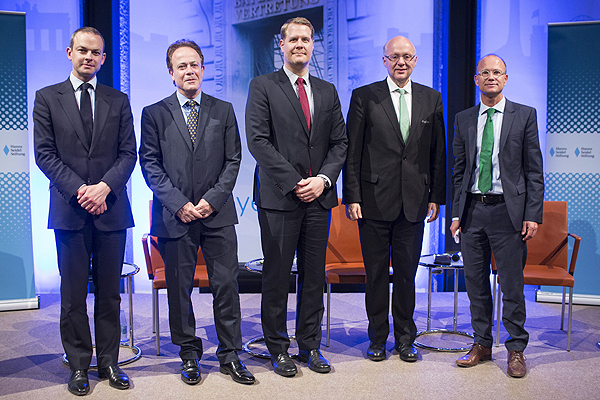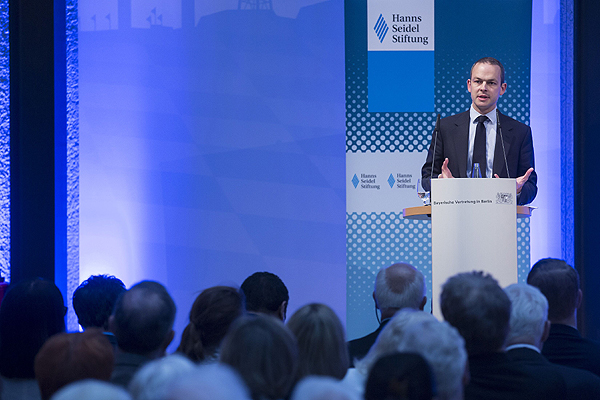100 years Sykes-Picot Agreement: European borders in the East?
Barr,Podeh,Wolf,Radwan,Asbeck
On June 7. 2016 the Hanns Seidel Foundation (HSF) Israel and the Hanns Seidel Foundation Berlin, held a joint conference in the German capital marking 100 years since the signing of the Sykes-Picot agreement, a European created reality that set the borders in the Middle East. The 1916 British-French clearly defined territories of interest, are now states such as Syria and Iraq, Lebanon and Jordan, whose borders have been dissolved or are at the least questionable.
With a keynote speech and a subsequent panel of international academics and politicians, the conference discussed the consequences of the legacy of the Sykes-Picot agreement, in the hope of raising awareness and some understanding for the political and historical reasons behind the current situation in Middle East. Opening the conference was keynote speaker Historian James Barr from King's College London. Barr outlined the development of the Sykes-Picot agreement, and presented the secret British and French negotiations as a sideshow of the First World War, with each stakeholder believing in having his nation's best interest in mind. While the influence of the defined zones at the time are often regarded as the cause of the border and sovereignty conflicts in the region, Barr argued that the Sykes-Picot Agreement is a symptom, and not the reason for the instability of the Middle East, since attempts at colonization of the Levant by the West goes back far longer.
James Barr
In the subsequent panel discussion, moderated by Richard Asbeck, HSF regional director for Israel and the Palestinian Territories, Alexander Radwan (CSU), member of the Foreign Committee of the German Bundestag, James Barr and Prof. Elie Podeh, of the Hebrew University of Jerusalem, discussed the impact of the Sykes-Picot Agreement on the present situation and the European responsibility for this region. During the discussion, Barr added that Western stakeholders, as in the times of the Sykes-Picot Agreement, continue to support various parties to the conflict in the Middle East. Accordingly, the staging of proxy wars that still take place in this region to date cannot be regarded as having been overcome.
According to Prof. Podeh, the current State boundaries - except perhaps in Syria – are no longer an issue. In order to promote peace in the region, one needs to strengthen the collective sense of belonging, in addition to strengthening the state infrastructures. In his opinion, a sufficient differentiation between the concepts of Nation and state building is lacking, in order to create a sustainable stabilization of the countries. With regard to the Middle East conflict between Israel and the Palestinian Territories, Podeh emphasized that a one-state solution is out of the question. According to him, the situation remains difficult since both sides continue to hold on to the status quo. In regards to the Islamic State, Podeh claimed that the West is not involved enough in the fight against it.
Member of Parliament Radwan urged for a differentiated view on the region and its cultural differences. He emphasized the importance of dialog between the various regional groupings, in order to incorporate their interests. Furthermore, he claimed that along with the nations' right to self-determination comes individual responsibility for conflict resolution. In order to overcome the current lack of prospects in the region, specific solutions should be suggested by the affected countries themselves. According to him, Europe, as direct neighbor, should get involved and be supportive, not least, because the consequences of an unstable region would be felt, for example, in the form of refugees. Therefore, Radwan did not rule out a European involvement beyond that of humanitarian aid. He also called to transcend Western principles, in this case, when having to do with identifying regional powers as interlocutors, in order to get help in creating the necessary degree of stability and/or to maintain it.


